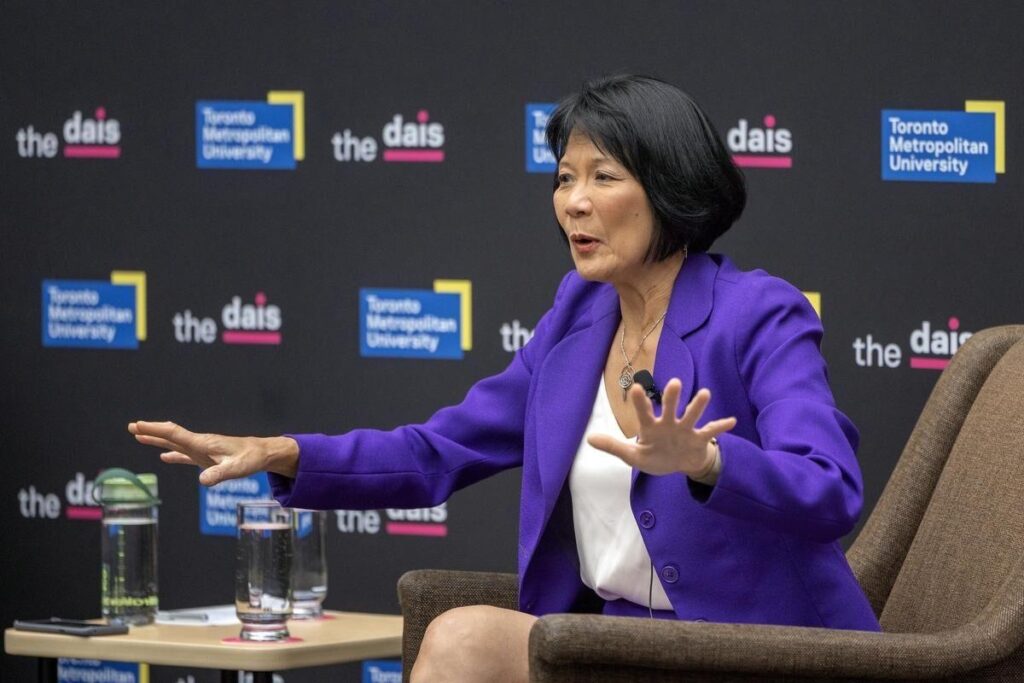
The federal government’s fall economic statement tabled Tuesday is “promising” but “not ambitious enough” to tackle Toronto’s ongoing housing crisis, says Mayor Olivia Chow.
“The funds need to come a lot faster. People are waiting. We cannot wait too much longer,” Chow told reporters late Tuesday afternoon shortly after the mini-budget was presented in the House of Commons.
Federal Finance Minister Chrystia Freeland has pledged up to $15 billion in new loan funding that could help build more than 30,000 additional rental housing units nationwide and earmarked an additional $1 billion over three years for a new affordable housing fund with an aim to construct 7,000 new homes by 2028. The funds announced won’t flow until 2025.
null
Freeland also announced the government’s plan to table a bill to create a new Department of Housing, Infrastructure and Communities.
Chow applauded the federal government’s housing “blueprint,” which she said is similar to the city’s recently approved plan to build 65,000 rental homes over the next seven years, which needs significant financial commitments from the federal and provincial governments.
Toronto’s plan would include at least 41,000 affordable rental homes, 6,500 rent-geared-to-income homes, and 17,500 rent-controlled market homes. City staff estimate that the plan will cost between $28.6 billion and $31.5 billion over the next seven years.

The mayor said she expected to see more immediate funds from the fall economic statement to help the city reach its housing targets.
“I am encouraged that there is a blueprint similar to the city,” Chow said.
The federal plan in the economic statement offers land, consolidates different departments, puts the funds together, and maps out where they want to go. Unfortunately, it is not ambitious enough.”
Last week, Freeland was in Toronto to announce that the federal government will help build more than 2,600 rental homes in the city by providing $1.2 billion worth of fully-repayable low-interest loans.
Chow, meanwhile, said that the city is still waiting for the approval of its housing accelerator fund application, hoping to receive $500 million from the feds.
Other housing initiatives announced in the fall economic statement include a new “Canadian Mortgage Charter,” a crack down on short-term rentals, and an increase in the number of construction workers by removing red tape.
Toronto’s mayor also voiced her disappointment that there was no mention of addressing the refugee crisis that the city and other municipalities are dealing with. Toronto has expressed concern over its ability to meet the demand of people looking for shelter, especially as the temperature drops.
“Tonight, there will be probably 350 people in tents because they can’t find shelter. It’s raining out. There will be people that would have no place to go. We are in the middle of a housing crisis,” Chow said.
“There is a plan there. It’s promising, but people need more — faster.”



